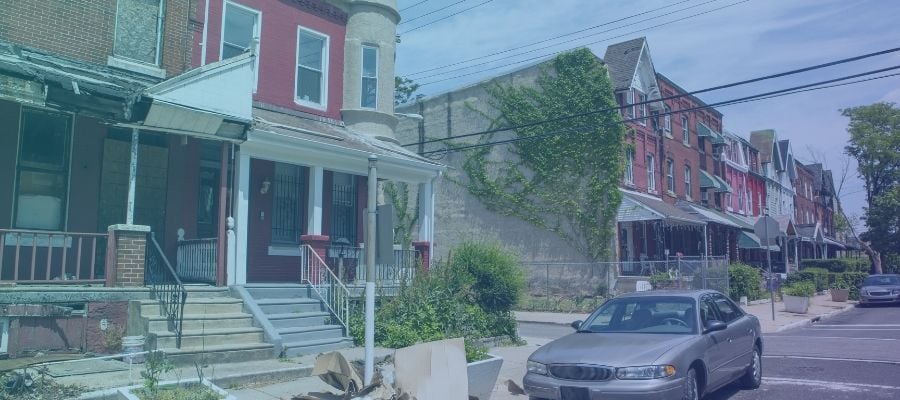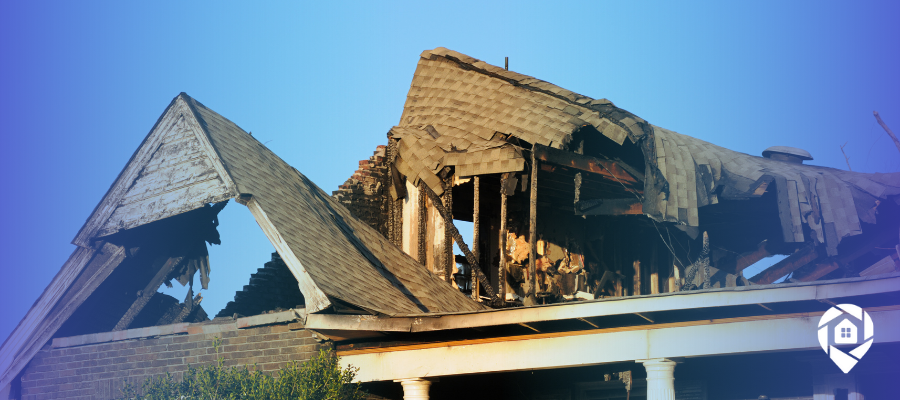
Wholesale Real Estate: Full Guide & Profit Calculator

Are you interested in starting a wholesale real estate business or becoming one of many wholesale real estate investors? This guide will set you on a path to real estate wholesaling success!
Wholesale Real Estate Definition
Wholesale real estate refers to the process of an investor getting a property under contract well below market value and then transferring the contract to another buyer at a marginally higher price.
Essentially, the wholesaler is like a middleman who doesn't hold the property for an extended period. They make profits from the difference between the price they buy the property and the amount they sell it for without making any renovations or repairs.

Key Takeaways
- Real estate wholesaling refers to the business strategy of putting properties under contract well below their market value, typically from sellers who need to sell quickly, and then selling the contract to other investors for a higher price. This method can be profitable for those with limited capital, as you don't have to own a property to make profits.
- This strategy carries its own level of risk and requires a lot of knowledge about the real estate market, including property valuation and rehab estimation. It's crucial to calculate your potential profits accurately and factor in any hidden costs or potential challenges involved in the property deal.
- Lastly, a real estate wholesaling investor needs to network extensively to succeed. Building a solid investor list should be nurtured and constantly updated. Success in wholesale real estate heavily depends on one's ability to find potential buyers through networking.
Wholesale Real Estate Profit Calculator
Importance of Wholesale Real Estate

Wholesale Real Estate is an essential term in real estate investing as it refers to the practice of an investor getting a property under contract and then selling the deal or assigning the contract as quickly as possible. This strategy is significant since it enables investors to profit with minimal risk and investment. Instead of purchasing and renovating a property for resale, the wholesaler contracts the property with a buyer in mind and acts as an intermediary.
This role is crucial because it frequently provides opportunities for other investors to buy properties below market value and can be a valuable asset to an investment team.
Real Estate Wholesaling Explanation

Wholesale real estate, a powerful investing strategy, can be a lucrative avenue for a real estate investor to acquire properties without substantial upfront capital or financing. The purpose of this investment entity is to allow the investor (wholesaler) to identify potential investment properties, put them under contract, and then sell that contract to another investor or buyer.
Wholesalers act as intermediaries in these transactions, identifying undervalued properties, then passing them onto buyers looking for investment properties at discounted prices-- all while making a profit for themselves through assignment fees or sale profits. Often used in situations where properties may not be readily available on the open market or where an investor is looking for a quicker or less risky transaction, wholesale real estate allows investors to gain profits without renovations or long holding periods that typically accompany traditional real estate investments.
Essentially, it facilitates the transition of properties from owners who may need to sell quickly or can't maintain the property to investors who are capable and willing to manage and profit from such properties. Wholesalers help streamline this transition, which can benefit all parties involved.
Legality of Wholesale Real Estate
Different aspects of real estate and real estate investing remain under constant scrutiny. While the legislation of wholesale real estate can vary from state to state, it is generally considered legal across most jurisdictions. The main concerns facing real estate investors legally (1) the way that you are marketing to a property and (2) statutes in regards to the assignment of real estate contracts.
The legislation for these is designed to bring more transparency to the entire process for the potential sellers. The laws regarding marketing in different jurisdictions, it is aimed at preventing deceptive or misleading practices. In Indiana, a law was passed that requires non-licensed individuals to disclose that. See our article on new real estate regulations facing investors. The regulations on assignment contracts also aims to provide more transparency, usually requiring explicit disclosures about the contract.
Examples of Real Estate Wholesalers

Property Under-Value Purchase
This is one of the most common examples of wholesale real estate investing. The investor or wholesaler identifies a property that is being sold below its market value. This could be due to various circumstances like financial distress of the owner, property damage, or a quickly needed sale. The wholesaler then signs a contract with the seller, aiming to assign the contract to an end buyer, making a profit from the price difference.
Foreclosed Homes
Real estate wholesalers often take advantage of properties in foreclosure. The lender may foreclose on the property when homeowners fail to make mortgage payments. These properties are often sold at a price significantly below their market value. The wholesaler can then enter a contract with the bank and sell the contract to a potential buyer at a higher price, making a profit from the deal.
Off-Market Properties
Some property owners prefer selling their properties off-market to avoid the hassle and cost of listing. In such cases, a wholesale investor could step in, secure the property contract, and then sell the contract to interested buyers for a higher price. Again, the price difference gives the wholesaler their profit.
Wholesale Real Estate Versus House Flipping
| Wholesale Real Estate | House Flipping | |
|---|---|---|
| Strategy | Assigning contracts to other buyers | Purchasing, renovating, and reselling |
| Capital Requirement | Low | High |
| Profit Potential | Lower profit per deal | Higher profit potential per project |
| Risk | Lower risk | Higher risk |
| Involvement | Limited involvement in property | Active involvement in renovation process |
| Networking | Strong networking and marketing skills required | Building relationships with contractors, agents, etc. |
| Time Commitment | Less time required for each deal | More time-intensive per project |
| Financing Options | Not typically reliant on financing | Often requires financing for purchases |
| Skill Requirements | Strong negotiation and marketing skills | Renovation, project management, market analysis, negotiation, etc. |
How to Find Distressed Properties?

Finding distressed properties will be a significant part of your wholesale real estate strategy. Other wholesalers will compete with you in your area for the best properties for resale.
Direct Mail Campaigns
One common method is to conduct direct mail campaigns targeting homeowners facing foreclosure or those who are behind on their mortgage payments. You can acquire lists of pre-foreclosure, delinquent, or distressed properties from local public records or specialized data providers. Craft compelling letters or postcards that offer solutions to their financial challenges and express your interest in purchasing their property.
Online Listings and Auctions
Keep an eye on online platforms and websites that list distressed properties, such as foreclosures, bank-owned property databases, or real estate auction websites. These platforms often provide information on properties in pre-foreclosure, foreclosure, or short-sale situations.
Local Networking
Build relationships with local real estate agents, investors, and professionals who work with distressed properties. Attend real estate networking events, join investment groups, and connect with individuals with access to off-market distressed properties. They may provide leads or be willing to partner with you on deals.
Driving for Dollars
Take to the streets and physically drive around neighborhoods to identify signs of distress, such as boarded-up houses, overgrown lawns, or properties needing repair. Make a note of the addresses and research the property owners to determine if they may be motivated to sell.
Wholesaler Websites and Networks
Join online platforms and networks specifically designed for wholesalers and real estate investors. These platforms often have features to help you find distressed properties, connect with sellers, and build relationships with other investors.
Public Records and Notices
Check public records for notices of default, lis pendens, tax liens, or probate filings, which can indicate distressed properties. You can typically access these records through local county clerk offices or online portals.
Bandit Signs and Flyers
Place bandit signs or distribute flyers in targeted neighborhoods, offering to buy houses quickly or help homeowners in distress. Ensure compliance with local regulations regarding signage and distribution.
Real Estate Auctions
Attend local foreclosure auctions or short sales, where distressed properties are often auctioned off. Research the properties beforehand, understand the auction process, and come prepared with the necessary funds or financing options.
Basics of Wholesale Real Estate Contracts

- Contractual Agreement: A wholesale real estate transaction typically begins with a purchase contract between the wholesaler (the assignor) and the property seller. The contract outlines the terms and conditions of the sale, including the purchase price, closing date, and any contingencies. Ensuring the agreement is legally binding and includes all the necessary elements local laws require is crucial.
- Assignment Clause: Wholesale real estate contracts often include an assignment clause. This clause allows the wholesaler to assign their rights and obligations under the contract to another buyer (the assignee) before the closing date. The assignment fee, which is the profit for the wholesaler, is typically specified in the contract.
- Disclosure Requirements: In many jurisdictions, wholesalers have certain disclosure obligations. They may be required to disclose to the seller that they intend to assign the contract and make a profit. Additionally, they may need to disclose any material facts or defects about the property they are aware of. Non-compliance with disclosure requirements can lead to legal issues and potential liability.
- Compliance with Real Estate Laws: Wholesale real estate transactions must comply with applicable real estate laws, including licensing requirements, disclosure laws, and anti-fraud regulations. Wholesalers should ensure they comply with all local, state, and federal laws governing real estate transactions.
- Earnest Money Deposits: The contract may specify the amount and handling of earnest money deposits, which the wholesaler typically provides as a sign of good faith. Understanding the local regulations regarding earnest money deposits and ensuring compliance with any requirements or restrictions is important.
- Consultation with Legal Professionals: Given the complexity and potential legal implications, consulting with a qualified attorney experienced in real estate law is advisable before engaging in wholesale real estate transactions. They can provide guidance, review contracts, ensure compliance, and help protect your interests.
How to Get a Real Estate License

You will need to check the state that you reside in to see if you need to acquire a real estate license to practice wholesaling.
The process to obtain a real estate license typically involves several steps that vary depending on the country or state where you plan to practice. It is crucial to research the licensing requirements applicable to your location thoroughly. Each jurisdiction may have its own set of qualifications, age restrictions, educational prerequisites, and additional criteria you must fulfill to become a licensed real estate agent.
Once you have familiarized yourself with the requirements, ensure that you meet the licensing authority's basic eligibility criteria. These may include being of a certain age, having a high school diploma or equivalent qualification, and possessing legal residency or citizenship status in the respective country or state.
The next step is to complete the necessary education and coursework the licensing authority mandates. Most jurisdictions require aspiring real estate agents to successfully complete pre-licensing courses from an accredited educational institution. These courses provide the fundamental knowledge and understanding of real estate principles, laws, ethics, contracts, and other relevant topics. The duration and content of these courses may vary, so it is essential to select a reputable educational provider that meets the requirements of your jurisdiction.
After completing the required coursework, you will typically need to pass a real estate licensing examination. This exam assesses your comprehension of the material covered in the pre-licensing courses. It is essential to adequately prepare for the exam by studying the relevant materials and taking practice tests. Many jurisdictions provide study resources and guides to help applicants prepare for the exam.
Once you have passed the licensing examination, you will likely need to submit an application to the licensing authority. The application may include providing personal information, education details, exam results, and any other necessary documentation. Additionally, you may be required to pay an application fee.
After submitting your application, it will be reviewed by the licensing authority. If approved, you will receive your real estate license, allowing you to practice as a real estate agent legally. It is important to note that obtaining a real estate license does not automatically guarantee success in the industry. Building a successful career in real estate often requires ongoing professional development, networking, and dedication to providing excellent service to clients.
Frequently Asked Questions(FAQ)
Q: What is Wholesale Real Estate?
A: Wholesale Real Estate is an investment strategy where the investor signs a contract with a home seller and then finds an interested buyer. They don't buy the property themselves but instead sell the contract to a buyer and make profits from the transaction.
Q: How Does Wholesale Real Estate Work?
A: In Wholesale Real Estate investing, an investor identifies a distressed property or seller, enters into a contract with them to purchase the property, and then assigns that contract to another buyer willing to rehab the home. The original investor makes their profit by selling the contract for more than they paid.
Q: Does Wholesale Real Estate Require a Lot of Capital?
A: No, a significant advantage of Wholesale Real Estate is that it requires very little money to start since you're not purchasing the property yourself. Instead, you're merely signing a contract to buy and then selling that contract to another buyer.
Q: Is Wholesale Real Estate Legal?
A: Yes, Wholesale Real Estate is legal in most places. However, certain regulations might exist depending on your location, and it's always advisable to consult with a local real estate attorney to understand the legalities involved in your area.
Q: Is There a Risk Involved in Wholesale Real Estate?
A: Like any business endeavor, Wholesale Real Estate does involve risk. The wholesaler must be able to find a buyer for the property in a reasonable time frame. If they cannot find a buyer, the wholesaler could lose their deposit or be forced to buy the property themselves.
Q: How Much Money Can I Make in Wholesale Real Estate?
A: The money you make wholesaling Real Estate largely depends on the investment deal, but wholesalers can typically expect to make a few thousand dollars per deal. Use our calculator above to see what you can make!
Q: Do I Need Training to Start Wholesale Real Estate?
A: While you don't need formal education or a license to start wholesaling real estate, educating yourself about the strategy and the local real estate market is essential. There are many courses, books, and resources available that can teach you about wholesaling.
Q: Can you be a Real Estate Wholesaler part-time?
A: Yes, many wholesalers start on a part-time basis. However, like any business, the time you put in will correlate to how much success you see.
Common Terminology in Real Estate Wholesaling
- Wholesaler: The individual or company specializing in finding and securing discounted properties and assigning the contracts to other buyers.
- Assignor: The wholesaler who enters into a purchase contract with the property seller and later assigns the contract to an assignee.
- Assignee: The buyer who takes over the rights and obligations of the contract from the wholesaler (assignor).
- Assignment Fee: The profit earned by the wholesaler for assigning the contract. It is the difference between the contract price with the seller and the price at which the contract is assigned to the buyer.
- Double Closing: Also known as a simultaneous closing, this refers to the process of closing two separate real estate transactions almost simultaneously—the first between the seller and wholesaler and the second between the wholesaler and the end buyer.
- Distressed Property: A property in poor physical condition, facing financial difficulties, or undergoing foreclosure or other legal issues.
- Motivated Seller: A property owner who is eager to sell quickly, often due to financial, personal, or other circumstances.
- Off-Market Property: A property not listed on the traditional real estate market, typically not advertised to the general public. Wholesalers often seek off-market properties to find better deals and negotiate directly with the property owners.
- Due Diligence: The process of thoroughly investigating and evaluating a property, including its legal, financial, and physical condition, before proceeding with the wholesale transaction.
- Purchase and Sale Agreement: The contract between the wholesaler and the property seller outlining the terms and conditions of the sale, including the purchase price, closing date, and any contingencies.
- Closing Costs: The expenses incurred during the closing of the real estate transaction, including title search fees, escrow fees, recording fees, and other associated costs.
- Marketing for Buyers: The strategies wholesalers employ to attract potential buyers or investors interested in purchasing wholesale properties. This may include networking, online marketing, attending real estate events, and maintaining a buyers' list.
- Buyers' List: A database or list of potential buyers or investors interested in purchasing wholesale properties. Wholesalers build and maintain this list to quickly connect with buyers when they have properties available for assignment.
- Title Company: A neutral third-party company responsible for handling the closing process, ensuring the title is clear, and facilitating the transfer of ownership between the parties involved in the transaction.
Sources for More Information

About David Lecko
David Lecko is the CEO of DealMachine. DealMachine helps real estate investors get more deals for less money with software for lead generation, lead filtering and targeting, marketing and outreach, and acquisitions and dispositions.



